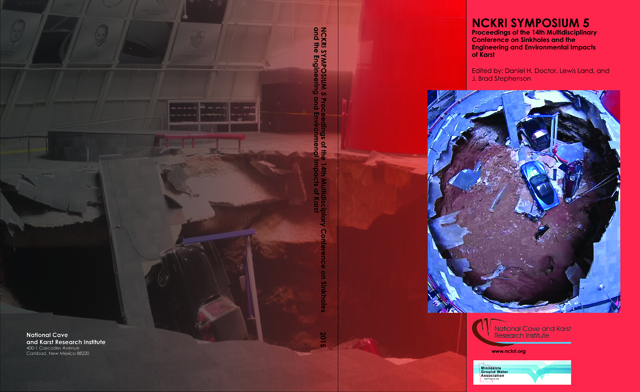Abstract
Karst paleo-collapses are unique collapse structures widely found in the coal measures of northern China. Their geometric dimensions and internal properties indicate that a compound dissolution of carbonate and gypsum rocks may contribute to their formation. When these collapses are permeable to groundwater flow, they hydraulically connect the coal seams and the karst aquifers, which is a pre-requisite for water inrushes during coal mining. Over the last 40 years, water inrushes through these collapses have caused fatalities, economic losses, and degradation in the environment in northern China. Determination of locations and hydrogeological characteristics of the karst paleo-collapses are essential in preventing water inrush incidents through them. Advanced geophysical prospecting, aquifer testing and accompanied dye tracing are effective approaches to investigating these structures.
DOI
http://dx.doi.org/10.5038/9780991000951.1011
Included in
Karst Paleo-Collapses and Their Impacts on Mining and the Environment in Northern China
Karst paleo-collapses are unique collapse structures widely found in the coal measures of northern China. Their geometric dimensions and internal properties indicate that a compound dissolution of carbonate and gypsum rocks may contribute to their formation. When these collapses are permeable to groundwater flow, they hydraulically connect the coal seams and the karst aquifers, which is a pre-requisite for water inrushes during coal mining. Over the last 40 years, water inrushes through these collapses have caused fatalities, economic losses, and degradation in the environment in northern China. Determination of locations and hydrogeological characteristics of the karst paleo-collapses are essential in preventing water inrush incidents through them. Advanced geophysical prospecting, aquifer testing and accompanied dye tracing are effective approaches to investigating these structures.

